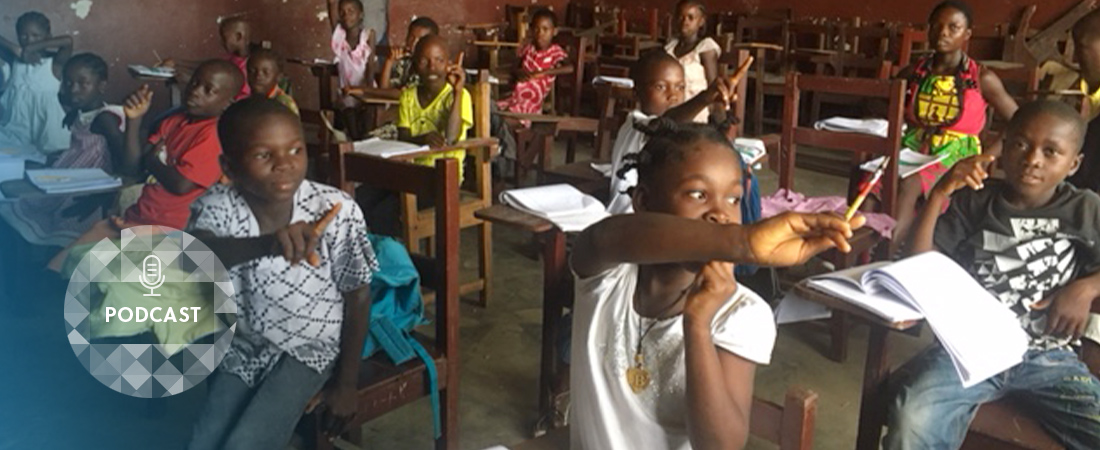Accelerating Education in Liberia

Listen in as our experts discuss a wide range of current topics. Check out all of our podcasts.
How do you overcome persistent barriers to early education—such as low enrollment or children missing years of school—in a low-resource environment? In Liberia, in partnership with its Ministry of Education, EDC is implementing a program that condenses six years of primary education into only three years of instruction. Called Accelerated Quality Education for Liberian Children, the USAID-funded program is giving learners the education they need to reenter formal schooling, while also enhancing connections among parents, communities, and schools.
In this podcast, EDC’s Denise Clarke-Reeves and Sarah Nogueira Sanca discuss why an estimated 300,000 Liberian children do not attend school and how EDC’s work is helping to get more children back into the classroom.
On the challenges to education faced by young people in Liberia
Clarke-Reeves: The one thing that keeps coming back . . . is just the inability to afford to pay for education. So even though education is technically free, there are associated costs. School fees, uniform fees, book fees, PTA [parent-teacher association] fees . . . [B]ecause most parents are not employed, or are self-employed, [these costs] become a deterrent.
Nogueira Sanca: In some cases, the children we are working with have become too old for the grade that they are supposed to be in. And that’s part of what we are working on, too. How do you help children and families reenter a formal system, or enter it for the first time, at the age that is appropriate for the grade they are going into?
On removing barriers to education
Clarke-Reeves: It’s about making sure that the barriers that are normally present are removed. So one of the things we make very clear about the accelerated learning program is that there are no school fees. We provide instructional materials, teachers, learner workbooks, teacher guides. So when you look at it like that, there’s really no reason why a child shouldn’t go to school.
On the importance of community and parental engagement in education
Nogueira Sanca: There’s an undercurrent of community engagement, and parent engagement, throughout the project. So whether we are looking at school rehabilitation or enrollment and recruitment of students . . . we look to work closely with the parent-teacher associations, which typically don’t include parents of out-of-school children. That’s been a component that we have had to add with the schools. We’ve had a lot of success adding other traditional leaders, too, whether they have children in the accelerated learning program with us or not. And we know that, that parent engagement will be part of what sustains things beyond us.